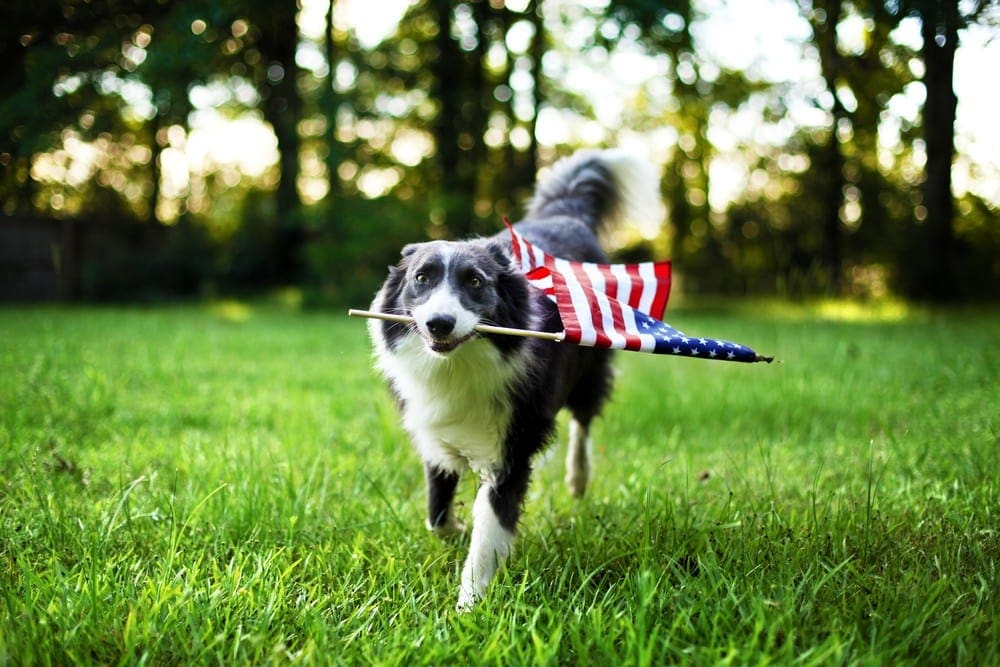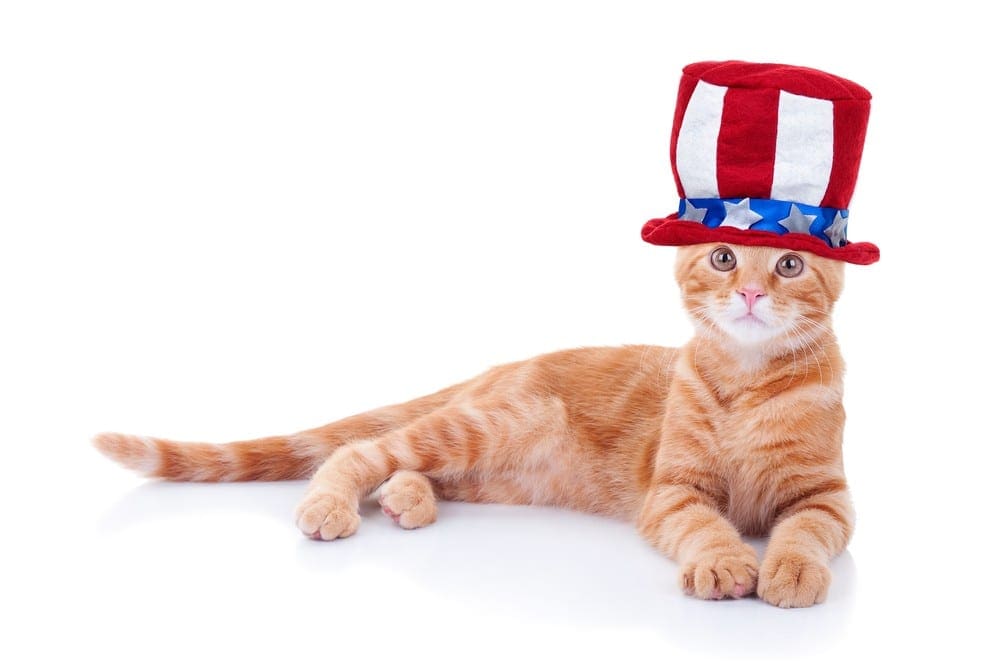Fourth of July is a fun summer holiday for most families with parades, cookouts and fireworks on their agenda. Unfortunately, the noise, crowds and change of routine make it a difficult day for many pets. If you plan in advance, these Fourth of July pet safety tips can make the day less stressful for your pet and prevent a trip to the emergency room.
Keep Your Pet’s Diet Consistent
As tempting as it is to share food from the cookout with your dog or cat, there is a long list of people food that is actually toxic to pets including avocados, alcohol, coffee/caffeine, chocolate, grapes, raisins, onions, garlic and undercooked meat and eggs. Any type of product with the artificial sweetener Xylitol is toxic (this includes some peanut butter products with Xylitol).
The best way to prevent problems is to keep your pet on their regular diet and make sure they have plenty of freshwater. If your pet does ingest one of the items listed above, check with animal poison control or call your vet or local pet emergency room for guidance.

Protect Your Pet from Pests and the Sun
Pets are susceptible to pests and the sun and do need proper protection. However, most human products are toxic to pets and many over-the-counter flea and tick products are not safe. Check with your veterinarian for the best flea, tick and sunscreen products for your pet.
Beat the Heat
Because dogs are prone to heatstroke during extreme temperatures, keeping your dog cool is extremely important. Never leave your pet in the car. If it’s a hot day, walk your dog or get in your playtime early in the day. Remember that streets and sidewalks can burn your dog’s paws and pets should be getting plenty of water to stay hydrated just like you. Make sure your pets have a cool place to rest during the day.
Symptoms of heatstroke include excessive panting or difficulty breathing, increased heart and respiratory rate, weakness, drooling and possible collapse. An elevated body temperature, seizures, vomiting and bloody diarrhea are also symptomatic. If your pet has these symptoms, you should cool him or her down and get help immediately.
There’s No Place like Home for Your Pets
Although festivals and events have become more welcoming to dogs, the best place for your dog is at home during holiday festivities. Most dogs should not attend parades and festivals because they are not really acclimated to the crowds and noise in those environments.

Set up a Safe Zone for Your Pet
According to Petfinder, Independence Day is the number one day for lost pets in America. Whether you go out and leave your pet home or host an event, take steps beforehand to make sure that your pet is not at risk for slipping out of the house or yard.
Keep your pet or pets secure indoors when you’re not at home. Check the fence, gates and doors to make sure they are secure if people will be coming and going from your house. Make sure your pet is wearing his or her updated tags or is microchipped just in case they should get away.
Set up a quiet, secure area for your pet during festivities
Many pets do not do well even in the comfort of their own home during Independence Day celebrations. Set up a comfortable, quiet room at home and provide some music or other background noise as a buffer.
If your pet tends to not do well during storms, stresses out from loud noise, or has separation anxiety, talk to your vet about anxiety medications. One option is a Thundershirt which applies gentle, constant pressure on a dog’s or cat’s torso to help relieve anxiety.

Fireworks are not pet-friendly
Do not use fireworks around your pet and keep them indoors to prevent injuries. Pets are not only frightened by fireworks, but residues like heavy metals, arsenic and potassium nitrate that are in fireworks are extremely toxic if ingested.
Even matches can be toxic and lighter fluid can cause gastrointestinal irritation, Central Nervous System depression (decreased rate of breathing, decreased heart rate, and loss of consciousness possibly leading to coma or death) and possibly severe pneumonia if ingested. Lighter fluid can also cause skin irritation if it comes into contact with their skin.
Beware of other holiday dangers
Glow sticks and necklaces are very popular with kids on the Fourth of July and it’s best to keep them away from pets. Although they are not toxic, the substance in glow sticks can cause gastrointestinal issues and plastic could cause intestinal blockage. Watch for other hazards that could include decorations and the barbeque.
Call your regular veterinarian if your pet does become sick or injured. If they are closed, you can reach Veterinary Specialty Center at 847.459.7535.
Recent Posts
About Us
Small description of the practice goes here - maybe pull from the About Us page?
